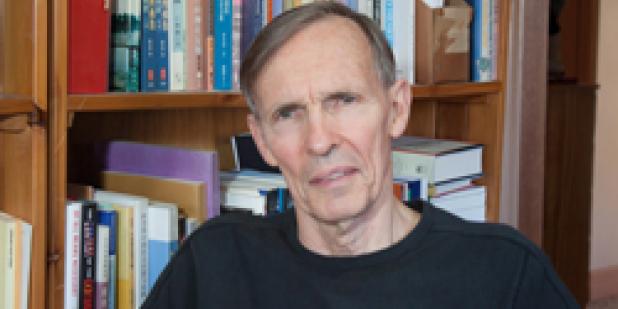Join us for a free one-day workshop for educators at the Japanese American National Museum, hosted by the USC U.S.-China Institute and the National Consortium for Teaching about Asia. This workshop will include a guided tour of the beloved exhibition Common Ground: The Heart of Community, slated to close permanently in January 2025. Following the tour, learn strategies for engaging students in the primary source artifacts, images, and documents found in JANM’s vast collection and discover classroom-ready resources to support teaching and learning about the Japanese American experience.
What is Necessary for Civility to Develop? A Comparative Study of Taiwan and the PRC
The UCLA Center for Chinese Studies presents Dr. David Schak of Griffith University. This lecture will explore the development of civility in Taiwan and the PRC.
Where

This lecture will explore the development of civility in two societies with very similar historical and cultural backgrounds and that for most of the last century were governed by Leninist parties that used campaigns to change grass-roots behaviour. Some of those desired behavioural changes were attempts to impose civility, which I define as respecting the public space and regarding all in one's society as consociates, thus deserving of considerate treatment. One of those societies, Taiwan, while being quite uncivil in the 1960s to the 1980s, became increasingly civil from the 1990s, to the extent that recent longer-term visitors from the PRC marvel and the genuine helpfulness and sincerity of the Taiwanese. In the PRC, while in the larger, more sophisticated cities, most people now queue and are generally helpful to strangers, there are other areas in which incivility prevail, e.g. driver behaviour, spitting, and following smoking restrictions. The lecture will examine these two societies to try to understand what conditions are necessary for a society to develop civility.
Dr. David Schak was educated at UC Berkeley and has an AB in Oriental Languages (1965), and an MA and PhD in Anthropology (1973). After teaching briefly in the US, he migrated to Australia in 1976 and has been affiliated with Griffith University since that time. He has spent over 15 years in Taiwan, first going there in 1959, and another three years in the PRC. He has researched and written on a variety of topics including dating as a new form of mate selection, poverty, beggars, Taiwanese business management and culture, filial daughters in industrialised Chinese society, engaged Buddhism's contributions to Taiwan's civil society, and civility.
Part of the Civility and Civil Society in Taiwan Lecture Series, Taiwan Spotlight project
Featured Articles
Please join us for the Grad Mixer! Hosted by USC Annenberg Office of International Affairs, Enjoy food, drink and conversation with fellow students across USC Annenberg. Graduate students from any field are welcome to join, so it is a great opportunity to meet fellow students with IR/foreign policy-related research topics and interests.
RSVP link: https://forms.gle/1zer188RE9dCS6Ho6
Events
Hosted by USC Annenberg Office of International Affairs, enjoy food, drink and conversation with fellow international students.
Join us for an in-person conversation on Thursday, November 7th at 4pm with author David M. Lampton as he discusses his new book, Living U.S.-China Relations: From Cold War to Cold War. The book examines the history of U.S.-China relations across eight U.S. presidential administrations.




